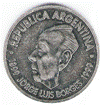Modern Languages and Literatures, Department of

Spanish Language and Literature Papers
Document Type
Article
Date of this Version
2009
Abstract
The re-democratization process in Argentina, beginning at the end of 1983, emphasized a tendency that had emerged within the Judeo-Argentinean fiction (and Argentinean narrative in general) to contemplate on the collective and personal memory, while creating a type of dialogue with the general historic context of the twentieth century. This process was un-masqueraded as a political and literary strategy in order to re-create an "archive" and re-construct it in a way that would correspond to the new material circumstances of the Argentinean nation and its society at that specific moment. The dilemma of how to define the essence of Jewish identity from that moment on, what is the relevance of Zionism in this new context, which method would best conserve the languages of origin-Yiddish and Hebrew primarily- and what is the significance of the images of "Land of Promise" and "Lost Paradise" in the new political circumstances, emerged suddenly again and renewed the debate about notions of collective and national belonging in an on-going changing world. "Israel," interpreted here as a literary element within the novels, had an important part in this discourse, since it seemed to present a few challenges to the collective attempts of building a unified national and collective identity, as I will explain shortly.


Comments
Published in LATIN AMERICAN JEWISH CULTURAL PRODUCTION, ed. David William Foster (Nashville: Vanderbilt University Press, 2009), pp. 24-40. Copyright 2009 Vanderbilt University Press.